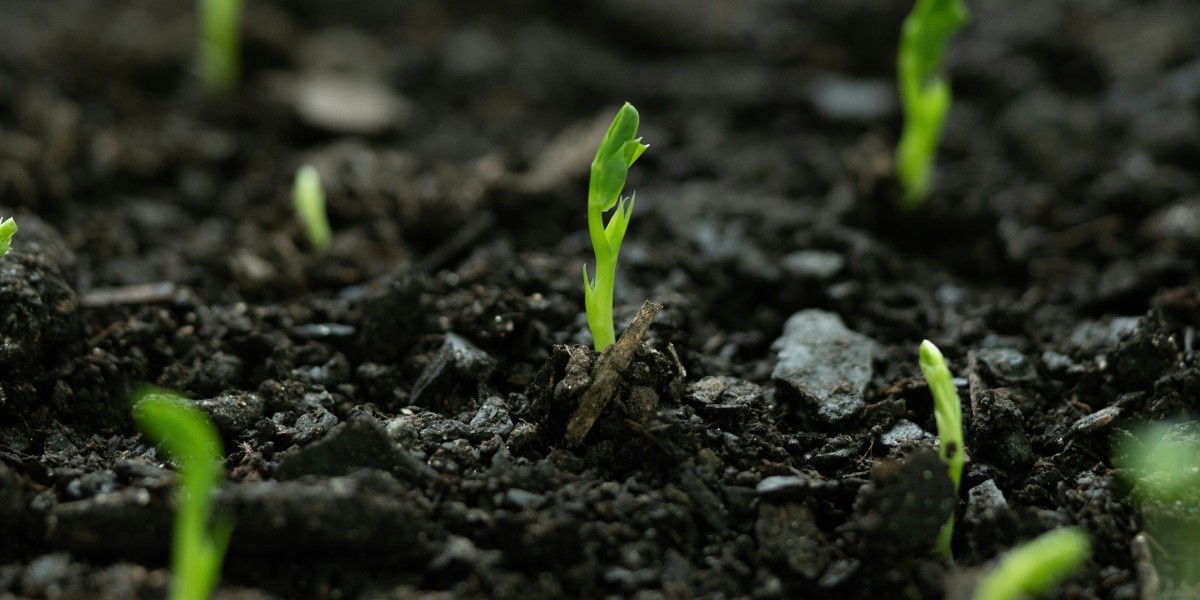Why Organic Nutrients Matter for Soil Health
Organic nutrients derived from natural sources, such as plants, animals, and minerals, are essential for enriching soil to support sustainable farming. Unlike synthetic fertilizers, organic nutrients improve soil structure, enhance microbial activity, and increase nutrient retention, ensuring long-term soil fertility.
Studies show that farms using organic methods see a 25% improvement in soil fertility over five years compared to those relying solely on synthetic solutions. You invest in the soil’s future health by focusing on organic options.
Benefits of Organic Nutrients
Sustainable Growth: Organic nutrients promote a slow and steady release of essential elements, providing plants with a continuous supply of nutrients.
Soil Enrichment: They improve soil texture, water retention, and microbial diversity, creating a balanced and fertile growing environment.
Organic Nutrients for Soil Improvement
1. Compost: The Ultimate Soil Conditioner
Compost is one of the most versatile and practical organic nutrients. Made from decomposed organic matter, it enriches soil with vital nutrients such as nitrogen, potassium, and phosphorus while improving soil structure.
Nutrient-Rich: Compost provides a balanced array of nutrients essential for plant growth, ensuring a healthy and productive soil environment.
Microbial Boost: It enhances soil’s microbial activity and is vital for nutrient absorption and health.
Buy Root and Soil Fertility Booster for Optimal Growth
Consider incorporating specialized solutions to maximize the benefits of organic nutrients like compost. Buy root and soil fertility booster products designed specifically for organic farming. These boosters help:
Enhance nutrient uptake by supporting healthy root systems.
Improve soil fertility by introducing beneficial microorganisms and minerals.
Organic soil fertility boosters can increase crop yields by up to 30%, highlighting their effectiveness in building and maintaining healthy soil.
2. Green Manure: Nature’s Fertility Enhancer
Green manure is an organic method that involves growing certain plants, like clover or rye, and tilling them back into the soil. This technique improves soil fertility by fixing nitrogen and increasing organic matter. It’s a simple yet powerful way to enhance soil quality without synthetic fertilizers.
Nitrogen Fixation: Leguminous green manure crops, like clover, add nitrogen to the soil, an essential nutrient for plant growth.
Soil Structure Improvement: Tilling these plants into the soil enhances its structure, promoting better water retention and root growth.
Green manure is a tried-and-tested method that farms worldwide use to maintain and improve soil health sustainably.
3. Worm Castings: Nature’s Fertilizer
Worm castings, or vermicompost, are a natural fertilizer produced by earthworms. This nutrient-rich material is packed with beneficial microbes and essential nutrients that plants easily absorb. Worm castings help improve soil aeration and water retention, making them an excellent option for soil improvement.
Interesting Fact: Farms using worm castings have reported a 15% increase in crop yield, demonstrating their impact on soil and plant health.
Microbial Enrichment: Worm castings are teeming with beneficial bacteria and fungi that enhance nutrient availability in the soil.
Water Retention: They improve the soil’s ability to retain moisture, reducing the need for frequent watering and ensuring that plants stay hydrated.
"Healthy soil isn't just the foundation of a farm—it's the promise of a sustainable future."
4. Bone Meal: A Phosphorus and Calcium Boost
Bone meal is a great organic nutrient for soil improvement, especially for plants that require a phosphorus boost, such as root vegetables and flowering plants. It also contains calcium, which helps balance soil pH and supports overall soil structure. Bone meal breaks down slowly, providing long-lasting benefits.
Benefits of Bone Meal
Phosphorus Enrichment: This essential nutrient supports root development and flowering, making it vital for various crops.
Calcium Addition: The calcium in bone meal helps to balance soil acidity, creating an optimal environment for plant growth.
When used correctly, bone meal can improve root strength and increase flowering potential, making it an essential tool for gardeners looking to boost their soil’s productivity.
5. Fish Emulsion: A Quick Nutrient Boost
Fish emulsion is a liquid organic fertilizer made from fish waste. It is an excellent nitrogen source and provides a quick nutrient boost for plants, especially during their early growth stages. The liquid form of fish emulsion makes it easy for plants to absorb nutrients rapidly, promoting healthier growth and increased crop yield.
Fast-Acting: As a liquid fertilizer, fish emulsion provides immediate nutrients to plants, which is particularly useful during planting and growth.
Rich in Essential Nutrients: It contains nitrogen, phosphorus, and potassium, ensuring a well-rounded supply of nutrients.
Statistics indicate that farms incorporating fish emulsion see up to a 20% improvement in growth rates during the early stages of planting, showcasing its effectiveness in simultaneously boosting soil and plant health.
Integrating Organic Nutrients: Best Practices for Farmers
To maximize the benefits of organic nutrients, consider these best practices for integrating them into your soil management routine:
Soil Testing: Conduct a soil test before applying organic amendments to understand your soil’s nutrient needs. This ensures you choose organic nutrients to address deficiencies and improve soil health.
Timing and Application: Apply nutrients like compost and green manure during the off-season to allow them to break down and enrich the soil before planting. For liquid fertilizers like fish emulsion, use them during planting and early growth stages for a quick nutrient boost.
Rotation and Diversity: Use a mix of organic nutrients, such as compost, bone meal, and worm castings, to create a balanced nutrient profile that supports diverse plant needs and enhances soil fertility over time.
By following these practices, farmers and gardeners can ensure their soil remains fertile, balanced, and capable of supporting abundant plant growth year after year.
Cultivating a Future with Healthy Soil
Instead of a traditional conclusion, let’s look ahead: Think of soil improvement as an ongoing journey rather than a destination. Your soil's health today directly impacts tomorrow's crops and productivity. By choosing the best organic nutrients and integrating them into your farming practices, you are investing not just in the present but in the long-term sustainability of your land.
Organic nutrients are more than just a quick fix—they are a pathway to creating a thriving ecosystem where soil, plants, and nature work together in harmony. Embrace this journey, nurture your soil with the right nutrients, and watch your farm or garden transform into a flourishing, resilient environment.
Every step toward organic soil enrichment is a step toward a sustainable future where farming and nature coexist, supporting each other to create a balanced and prosperous world.









